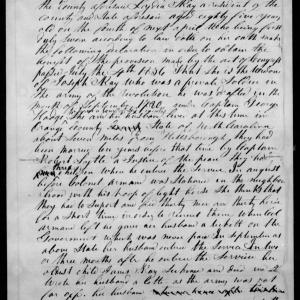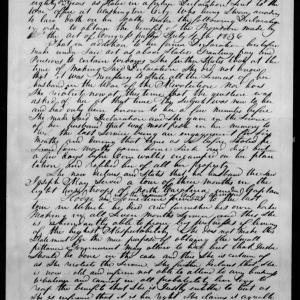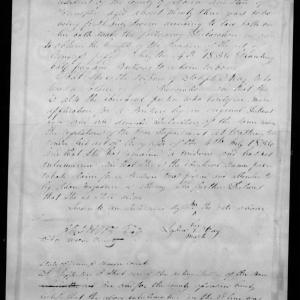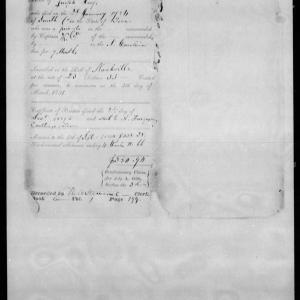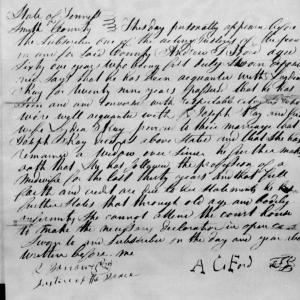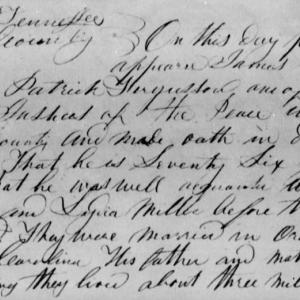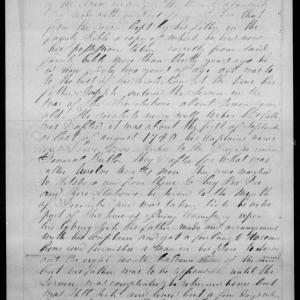Biographical Description
Lydia Miller Ray was born on April 4, 1752. She married Joseph Ray in Orange County, North Carolina in March 1771 and the couple had five children together. During the American Revolution, Lydia remained at their homestead in Orange County while her husband was a private in the North Carolina Militia. In addition to tending to the crops and caring for the couple's children, she also housed her sister-in-law, Jane Ray, who had to leave her own home due to harassment from Tories. In December 1780 the Ray's oldest son James fell sick and died. At Lydia's urging her husband came home, but he also fell sick. Lydia hired a substitute to serve out the remainder of her husband's enlistment in the hopes that her husband would recover, but her husband died on about New Year's Day, 1781, leaving her a widow with three small children and a fourth on the way.
In February 1781, misfortune stuck the Ray homestead again when General Cornwallis and the British Army camped nearby on their march towards Guilford Courthouse. Lydia Ray was in the late stages of pregnancy at the time and on bed rest, unable to stop the British and Hessian soldiers from robbing her household of all their personal property and seizing most of their cattle.
Following the war, Lydia Ray never remarried. Sometime after 1800 she and her family moved to Smith County, Tennessee, where she supported herself by working as a midwife. Eventually in 1837 she began the process of applying for a widow's pension for her late husband's wartime service. Originally the U.S. Pension Office rejected her claim, arguing that though Joseph Ray had been a soldier, he had not served the required three month service minimum. She had to reapply for a pension, proving her husband's service for seven months prior to his death. She died in Macon County, Tennessee on November 18, 1845. Just two weeks after her death, her pension application was finally approved and her daughter Sarah Ray Robinson inherited the right to an annual sum of $23.33 from March 1831 until November 1845 in compensation for Joseph Ray's military service.
As Sender
Additional Information
Name
Relationship
Husband
Name
Relationship
Son
Relationship
Daughter
Name
Relationship
Son
Name Type:

